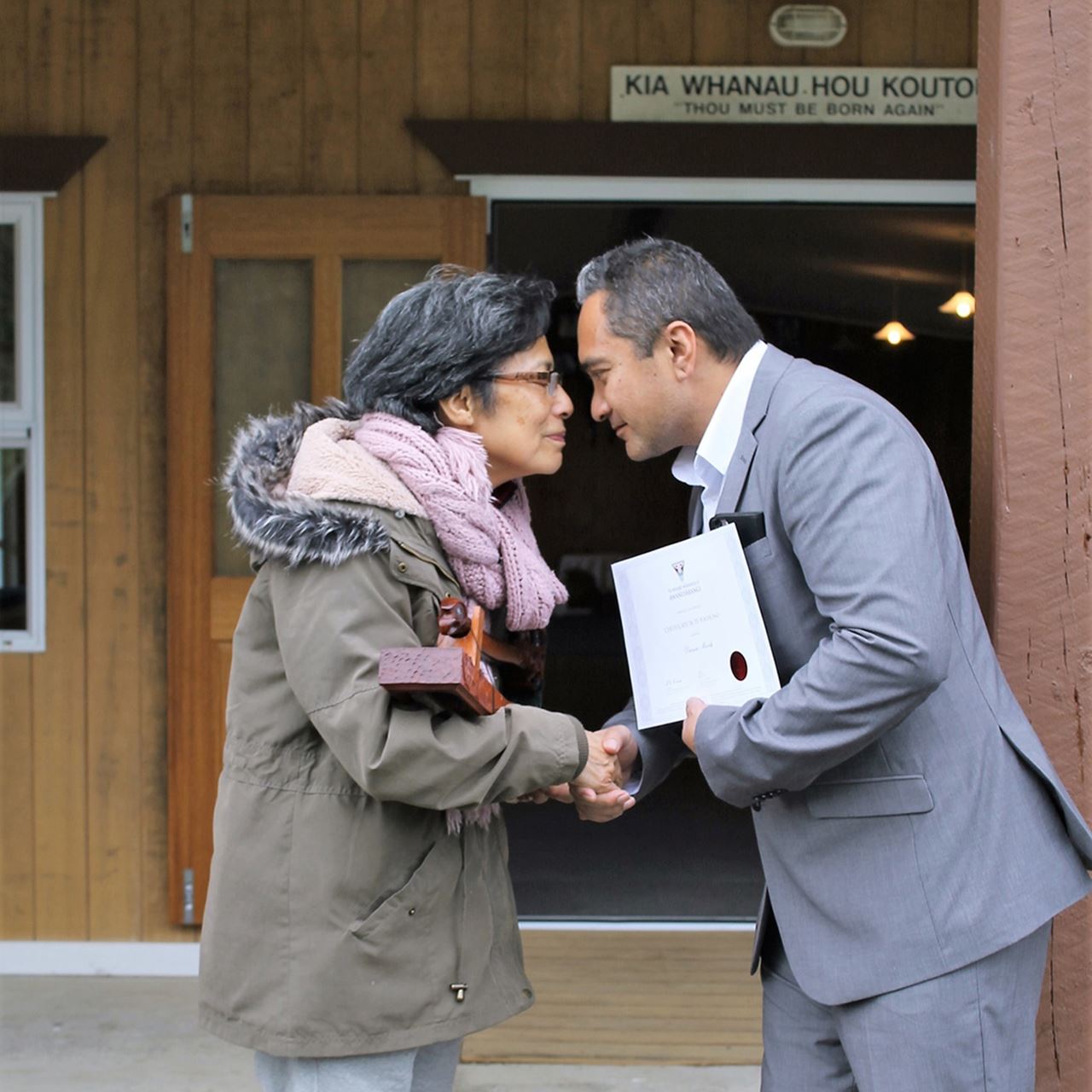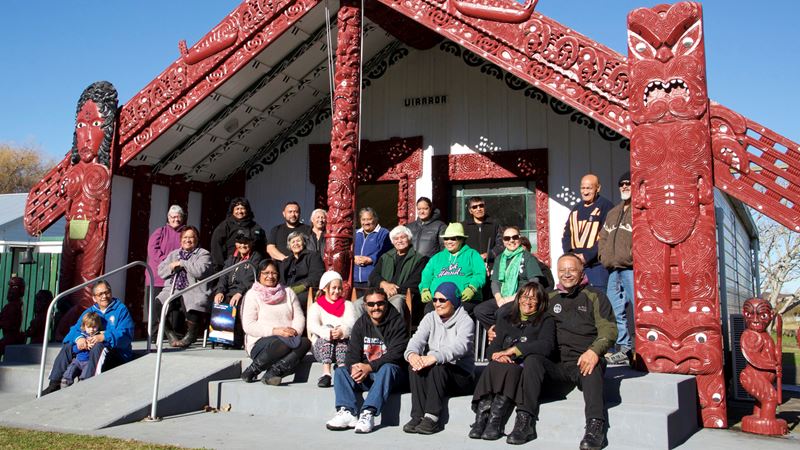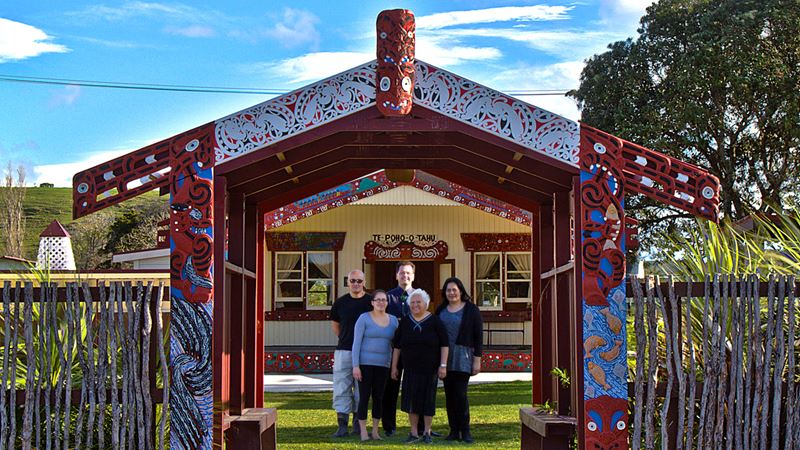Ten years of marae-centred education programmes have transformed the way one small Northland community is approaching its future.
Education is now a priority for several generations of Te Uri o Hau whānau from Ngatai Whakarongorua Marae at Tinopai, at the end of the peninsula on the the edge of the Kaipara harbour. Ngatai Whakarongorua formed a partnership a decade ago with Te Whare Wānanga o Awanuiārangi that centred on foundation courses in mātauranga Māori, including te reo, tikanga and waiata tawhito. As people progressed through the programmes, learning extended into areas such as rongoa (traditional medicine) and whenua (land).
Ngatai Whakarongorua programme co-ordinator Emily Ashby said the programmes changed many aspects affecting the small community.
“Our marae was all bush when our grandfather died in 1945. Eleven whānau decided together to purchase land from a Pākehā and build a marae. About 10 years ago, we wanted to develop our marae – improve our wharekai, our wharemoe, our ablution blocks – and our hapū. We wanted to wānanga. Our people weren’t going out for an education. We heard that Awanuiārangi would come to us – and its kaupapa was whānau, hapū, iwi development. The programmes had structure and were relevant; the learning pertained to us.
“Awanuiārangi supported us to develop capacity and capability to deliver the right programmes for our people. The teachers came out of the woodwork, our own, all those who were holding information – you couldn’t get that anywhere else, and be supported like Awanuiārangi supports us.
“Prior to our wānanga, there would be nobody at the marae. This kaupapa warmed our whare. Our wānanga brought us together and changed our relationships. We came together every month, a solid core of about 70 people over the years. This kaupapa put us all on the same page and brought discussion – robust discussion. It gave us the space for thinking. Everyone was a teacher and everyone was a learner – parents, grandparents, children and grandchildren. It changed the wairua. We were able to strengthen ourselves as a hapū, as a whānau, and this brought about some nice changes quite quickly.
“We found that this journey is not really about the tohu; it is really about the experience, about what we’re learning in that forum. One of our younger women went from a Pouhono programme to a teaching degree, and she is teaching now. Our wānanga gave our kids so much confidence, the confidence to stand up and give feedback. That is not something they were taught before; they were raised with the idea that they should be seen and not heard. Now the marae and in fact the whole hapū has shifted that thinking.
“In the past, we older ones did not prioritise education but in the last 10 years we have been living it. That changed mindset has filtered down to our younger ones. I look at our Year 12s and 13s and it is all about education. Our kids are now looking at university, and that whakaaro was not there before. Now you don’t finish school at Year 13 – you go on to further education. That’s the framework now for our marae and all of our whānau. That’s what Awanuiārangi has done for us. The priority now is to kōrero and think.”

Ngatai Whakarongorua Marae, Tinopai
Kimihia he huarahi ako
What can you study?

